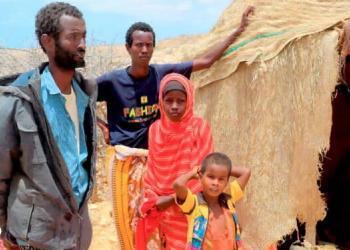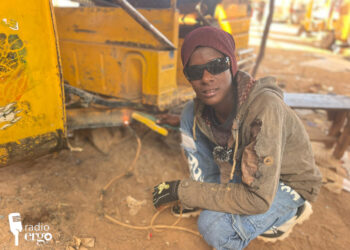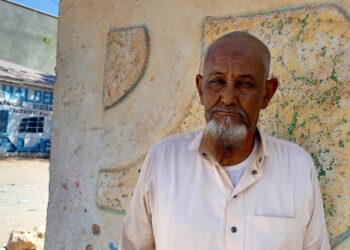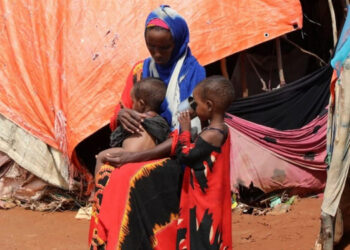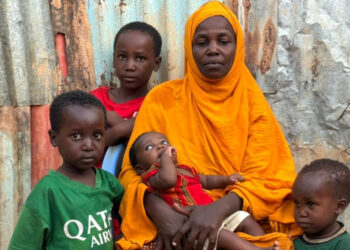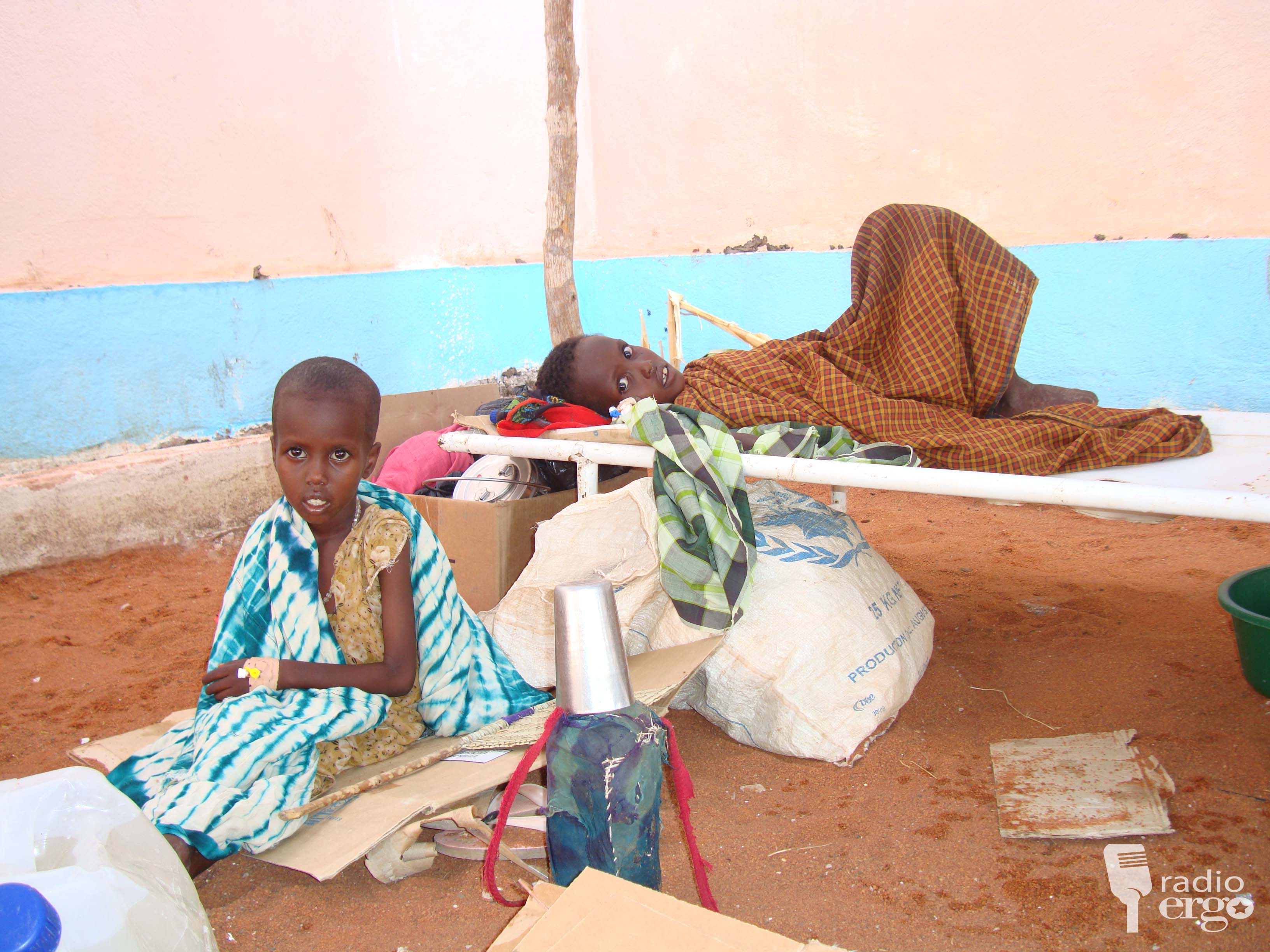Habibo Hassan Jama, 36, and her nine children feed off the pittance she earns from selling soap on her makeshift stall in a squalid displacement camp in Guriel, central Somalia’s Galgadud region.
She rarely earns more than a dollar a day but she says she still prefers this new life to her old life as a nomadic pastoralist. The drought wiped out all the family’s goats and they moved from Mataban village in the rural areas of Hiran region seven months ago to Guriel.
Habibo’s husband is blind and is not able to earn any income so feeding the family falls on her shoulders. She told Radio Ergo that on some days when she gets no customers at her stall they all sleep hungry unless their relatives can spare them some leftovers.
Habibo told Radio Ergo she is getting used to the city and is planning to find a way to move out of Barakeye camp to find better shelter.
According to Mohamed Maalin Hassan, secretary of the Commission for Displaced Persons in Guriel, 271 pastoralist families including Habibo’s have come to the city to start a new life. They are living in four IDP camps and apparently none of them wants to return to their nomadic way of life even if they were given more livestock.
Despite the ‘deyr’ rains that began in many parts of the country last month, many of the nomadic pastoralists who would finally be able to find water and grazing for their animals have decided to give up on a lifestyle that has simply become too hard to sustain.
It is huge turnaround in fortunes, though, as owning 300 goats in their day once made Habibo’s family one of the wealthiest in their rural area.
The virtual destitution they are living in now belies their once proud cultural heritage.
Mohamed Hassan Diriye, another former pastoralist, is finding it hard to get permanent work in the city because he has no skills. He gets casual work breaking rocks into gravel for construction but it is not a job he can always count on.
He and his family of nine were displaced from Qeydar district on the Ethiopian side of the border five months ago, after losing their 150 goats to the drought. They now live in the Al-Adaala camp in Guriel. Mohamed said he has no plan of going back to the nomadic life, in spite of the hardship they are currently living in and the lack of any clear future.


